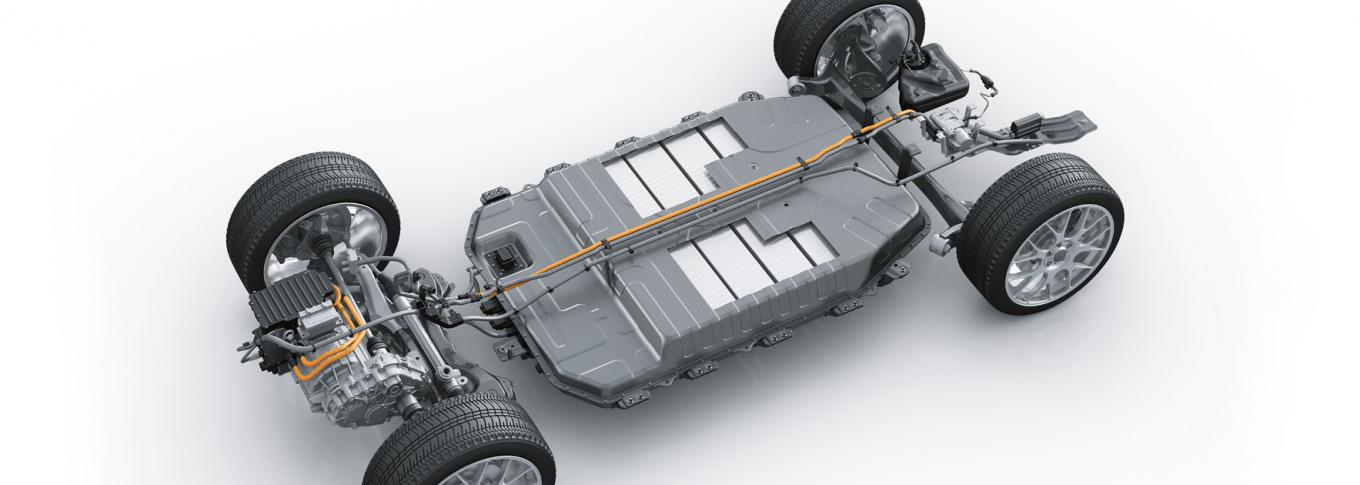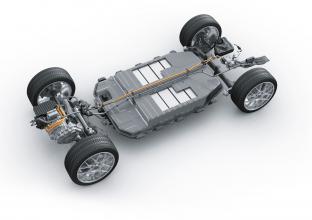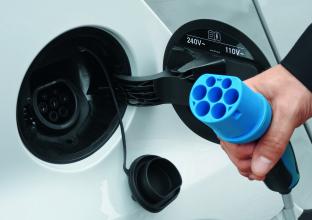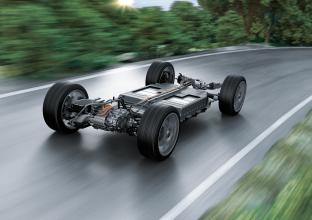
Festo increases turnover with electromobility
In 2020, Festo was able to increase sales in the "machines and systems for battery production" segment by 40 percent. The demand for automation for battery cell production and other e-vehicle components is increasing continuously.
The automotive industry is currently investing mainly in the development of new electric vehicles. Dr Ansgar Kriwet, Member of the Management Board for Sales: "In 2020, 70% of Festo's top projects in the automotive industry involved investments for electromobility." Based on this very good starting point, Festo expects significant double-digit percentage growth in the "Machines and systems for battery production" segment over the next few years.
Demand is increasing - opportunity for Festo
The degree of automation in production is increasing due to the electrification of powertrains. The traditional assembly of combustion engines involves the high-precision assembly of mechanical components, whereas the production of battery modules involves the assembly of very expensive and potentially dangerous electrochemical elements. In addition, there are new components compared to combustion vehicles: the electric motor, the batteries and the power electronics. Their production poses completely new challenges: For example, it is essential to avoid damaging the battery cells by dropping them. Festo therefore offers coordinated solutions for the robust, safe and precise gripping and transport of battery cells, particularly in the field of handling technology.
Key products
For battery production, copper-, zinc- and nickel-free automation components are necessary, such as the VTUG and VUVG valves in the "battery" version. Festo increases the productivity of its customers through engineering, for example with energy-efficient piezo valves VEAB and VEAE or with the servo press YJKP, which was sold in large numbers for battery cell production in order to press the wound batteries. In this case, the high quality pays off for the customers in battery production, because the batteries are very expensive and the plants run at a high cycle rate. Downtimes are costly and therefore prompt spare parts delivery and service are very important. In the last two years, Festo has invested in order to be able to cover all requirements for the portfolio. Festo's own research and participation in joint research projects, which focus on the handling process for the production of solid-state battery cells or the recycling of batteries, also contribute to their development.
Festo accompanies the entire process chain
Battery production is very complex. Festo offers industry-specific products and solutions for the manufacture of machines and systems along the entire process chain of battery cell production: From process automation products for raw material preparation to copper-, zinc- and nickel-free as well as dry- and clean-room compatible products for the fully automated production of battery cells to the assembly system for battery modules for installation in the vehicle. Festo also offers automation engineering and expert knowledge through to qualification by Festo Didactic and consulting by Festo Training and Consulting.
Unique combination: automation and training from a single source
Production facilities for components and electric vehicles are currently being built worldwide at short notice and at high speed. In order to train and on-board the large number of employees very quickly, who often do not have the right training or know-how, Festo Didactic offers industry-specific learning concepts: From access to the Festo Learning Experience Platform for self-study to learning factories for "hands-on" training with perfect knowledge transfer to the shop floor.
Safe battery handling
In a dynamic display Festo is presenting a modular assembly and disassembly system for battery modules and packs. The focus is on "safety" for safe handling of the battery modules. Mechanical fixings are placed underneath the cell with a swivel module to prevent unintentional loss of the cell. Parallel to the movement, an optical sensor system detects the mechanical alignment of the cell. In addition, its polarity is measured electrically. If the voltage is not correct, the cell is ejected. The cells checked in this way are inserted into the module housing in the appropriate orientation. If the battery is accidentally installed in the opposite direction to the intended polarity, this can lead to a short circuit of the module. A mechanical interlock on the cylinder secures the end position to prevent it from falling off in the event of an unforeseen loss of energy. Statistical process data monitoring evaluates data and indicates, among other things, when the gripper needs to be replaced. Festo thus uses a combination of pneumatic and electric drives, including sensors, in an energy-efficient manner.
Images and captions
Festo press image Electrification of Powertrain (Electromobility)
The demand for automation for battery cell production and other e-vehicle components is increasing. The degree of automation in production is increasing due to the electrification of powertrains.
(Photo: Festo SE & Co. KG)
Festo press image Electromobility symbol:
In 2020, Festo was able to increase sales in the "machines and systems for battery production" segment by 40 percent and sees great opportunities for further growth in this segment.
(Photo: Festo SE & Co. KG)
Festo press image Electrification of Powertrain real (Electromobility)
The demand for automation for battery cell production and other e-vehicle components is increasing. The degree of automation in production is increasing due to the electrification of powertrains.
(Photo: Festo SE & Co. KG)
费斯托 (Festo)是一家全球性的独立的家族企业,总部位于德国埃斯林根。自成立以来,Festo在工业自动化技术和技术教育方面制定标准,从而为环境、经济和社会的可持续发展做出贡献。公司为超过35个行业的30万家工厂和过程自动化客户提供气动和电驱动自动化技术解决方案,其中生命科学和实验室自动化业务受到越来越多的关注。Festo产品和服务遍布176个国家。2024年,费斯托在全球61个国家的250多个分支机构拥有约20600名员工,实现销售额34.5亿欧元。每年约8%的销售额用于研发。在这家学习型企业,1.5%的销售额用于基础和进一步培训。Festo 教学培训 (Didactic SE) 是全球领先的技术教育和培训供应商,为全球客户提供工业环境中全面的数字化和常规学习解决方案。



